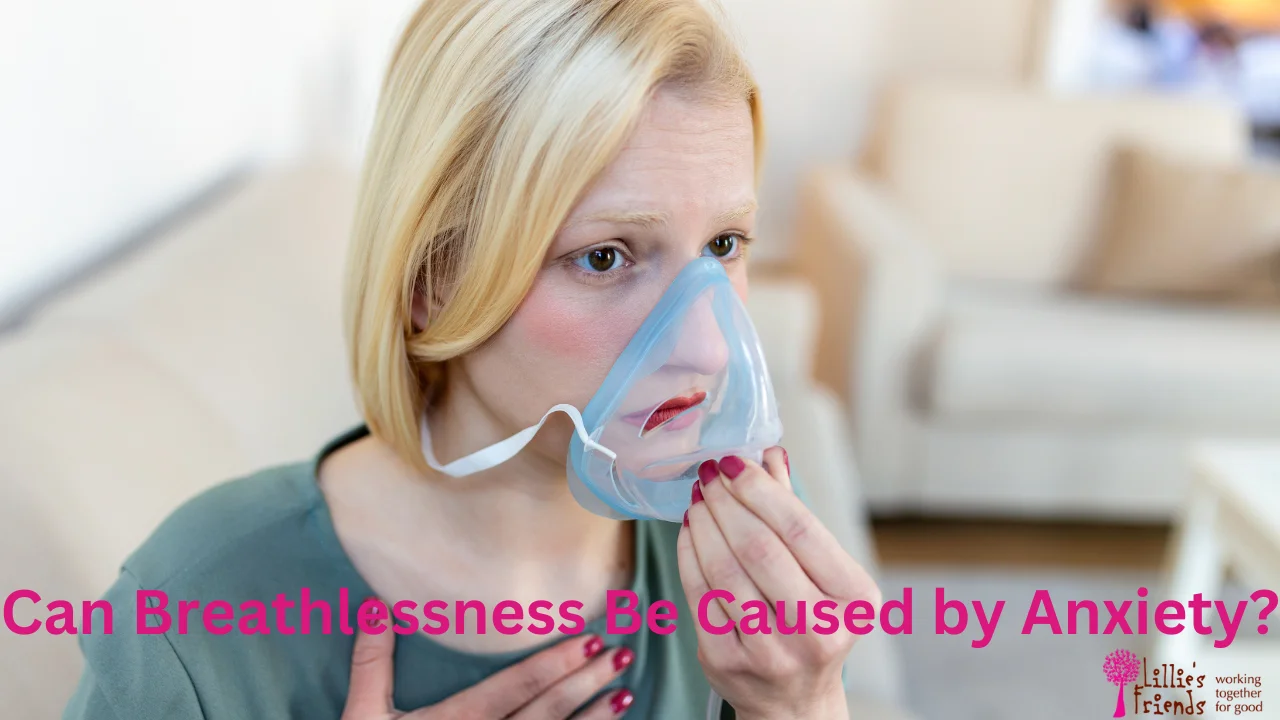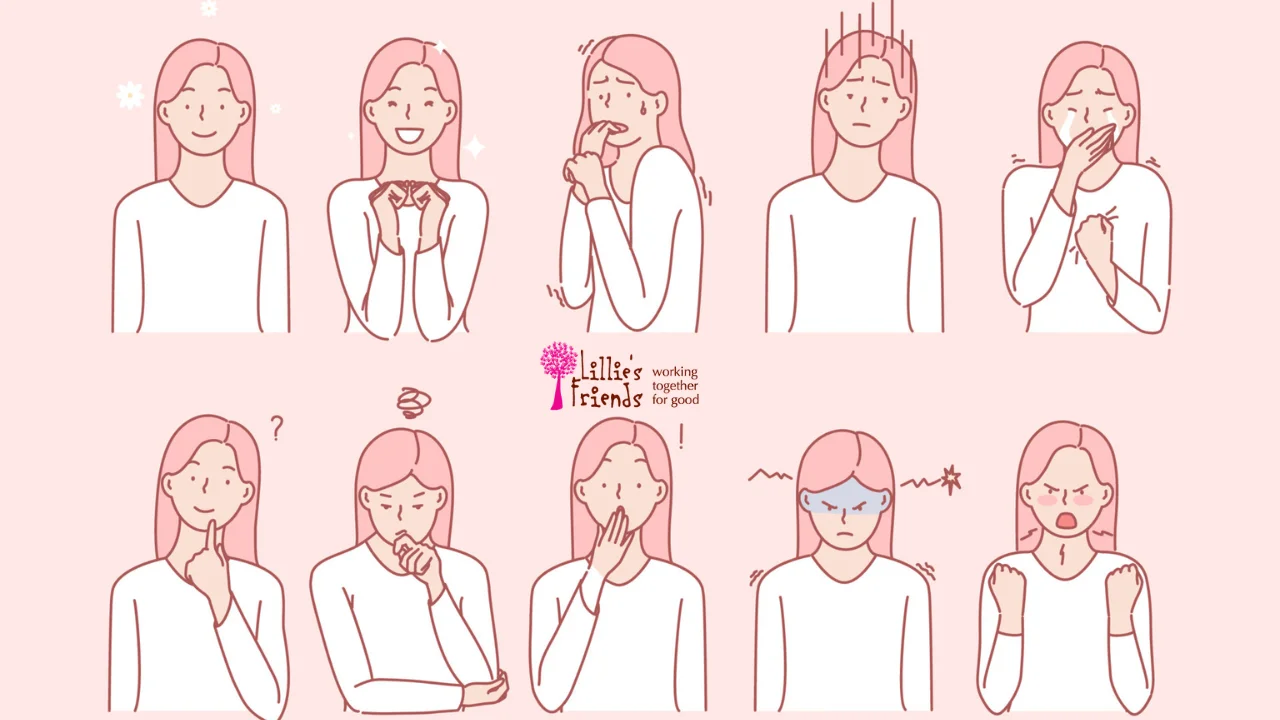Highlights
- Breathlessness and anxiety are two disorders that frequently coexist.
- Determining whether worry causes shortness of breath or the other way around may be difficult.
- Anxiety or a potentially fatal medical condition may cause sudden, severe dyspnea.
- The final determination of whether shortness of breath is due to anxiety should be made by a medical practitioner.
Although anxiety symptoms vary from person to person, many people with this medical disorder experience shortness of breath. Patients often attribute breathing problems to physical causes rather than mental issues like anxiety.
So, does anxiety cause shortness of breath? Is it dangerous? And what can be done to manage it? In this post, let’s understand how you tell if shortness of breath is from anxiety and what techniques you can use to relieve such feelings.
Note: Regardless of the cause, if your shortness of breath gets worse or becomes severe, seek emergent medical care.
Can Breathlessness Be Caused by Anxiety?
First of all, you may still be wondering if anxiety is the cause of dyspnea. Yes, without a doubt; you are not alone in experiencing this typical sign of stress.
Why Does Breathlessness Occur With Anxiety?
Two of the most frequent queries I received as a doctor treating nervous patients were:
- Why does stress make it difficult for me to breathe?
- Why does dyspnea result from anxiety?
The explanation is simple: fear. Let me explain. Fear is the sensation of being threatened; it can be perceived or actual, meaning that your brain may believe something is scary even while it isn’t. Perceiving a garden hose as a snake is an example of a perceived danger.
Extreme stress or anxiety can escalate your baseline anxiety and trigger panic attacks, leading to shortness of breath.
The next step is to comprehend how severe worry and terror contribute to dyspnea.
You’ve probably heard of the fight-or-flight reaction, which is your brain’s rudimentary survival strategy that activates when you perceive danger.
Your body receives instructions from your brain to defend itself or flee. It accomplishes this by moving blood enriched with oxygen from your brain and stomach to your muscles; fast breathing indicates a demand for extra oxygen.
The following physical signs of anxiety and panic are the result of this:
- Palpitations or a racing, hammering heart
- Breathing difficulties
- Lightheadedness
- Discomfort and indigestion
- Sweating and flushing
- Shakes and tremors
- Tightness or pain in the chest
- Numbness and tingling in the area of your fingers and lips
Breathlessness and heartbeat awareness are the most typical signs of severe anxiety and panic episodes; however, not everyone may have all of these.
How Does Anxiety-Related Shortness of Breath Feel?
Regretfully, no two nervous patients have the same shortness of breath; they may explain their breathing pattern as follows:
- My air intake is inadequate.
- I require additional oxygen.
- My breathing happens quickly.
- I’m having trouble breathing.
- Although I feel like I can’t breathe, I can.
- To get air into my lungs, I have to yawn or sigh.
This implies that you will need to find alternative methods to determine stress as a trigger for shortness of breath and that you cannot rely just on how it feels to determine whether worry was the reason.
Which Other Physical Health Conditions Cause Breathlessness?
Lung disorders, particularly asthma and chronic obstructive pulmonary disease, are the most prevalent physical health diseases that might produce this sensation. This is succeeded by:
- cardiac problems,
- being extremely obese or
- Issues with the nerves and muscles.
However, it becomes more complex. It makes sense that breathing difficulties of any kind can produce anxiety; if you are unable to breathe due to heart or lung issues, you will begin to feel anxious. Thus, a vicious cycle of anxiety and breathing problems starts.
How to Determine Whether Breathlessness Is Caused by Anxiety
Finding out whether there was an emotional trigger for the dyspnea, such as excessive worry, extreme stress, or uneasiness, just before it began is crucial.
Acute fear typically triggers breathing problems associated with anxiety and panic disorder within minutes. However, worry might occasionally cause you to feel as though you aren’t breathing enough; you may need to yawn or sigh, but this is usually mild and doesn’t require you to see a doctor.
Therefore, it is more likely to be a physical condition if you experience severe breathing difficulties for a prolonged period of time without any emotional causes. Additionally, if you have a fever, swollen legs, coughing, or trouble breathing through your nose, there’s a good chance that your dyspnea has a physical cause.

How to Treat Breathlessness Caused by Anxiety
Engaging the parasympathetic nervous system can potentially eliminate anxiety-related dyspnea. If you feel better after using these tactics, your shortness of breath was probably brought on by anxiety.
Deep breathing techniques are the simplest method for achieving this, and they offer numerous advantages:
- Easily reachable
- Neither a prescription nor medical supervision is necessary.
- Completes tasks in a matter of minutes
- There is no cost.
- No adverse effects
Breathing Diaphragmatically
The muscle that divides the chest from the abdominal cavity is called the diaphragm. In order to practice diaphragmatic breathing, one must inhale deeply through the nose, make sure the diaphragm flattens, raise and expand the belly, pause, and then purposefully exhale through the mouth by squeezing the belly in and out. Additionally, you can feel your rib cage rise and fall when you rest your hands on it.
There are a number of variations:
4-4-4-4 Method
This is simple to remember and is also referred to as equal breathing or box. Initiate a four-second inhalation, pause for four seconds, exhale for four seconds, pause for four seconds, and repeat this cycle four times.
3-3-3 Method
Reduce the four-second box breathing version to 3-3-3 if you’re having trouble with it. This means that you should breathe in for three seconds, pause for three seconds, and then exhale for three seconds.
4-7-8 Method
Although this version is believed to be helpful and is based on an old yoga practice, it may be difficult for those who are unfamiliar with breathing techniques. Four seconds of inhalation, seven seconds of pause, and eight seconds of gradual exhalation are the instructions.
Mild Exercise
Exercise satisfies the body’s desire for movement, which helps to decrease the flight reaction. However, there isn’t much data to support its use as an anxiety treatment. It is still widely advised due to its additional health advantages.
Methods of Relaxation
This five-minute body scan sample is simple to incorporate into daily life. Start with your toes and deliberately relax them when you wake up or right before bed. Next, do the same as you move up your body, one portion at a time. I challenge you to give it a try, even though it sounds ridiculous.
Techniques for Mindfulness
Being mindful involves paying attention to your emotions and physical experiences without passing judgment, realizing that you may be able to alter these feelings by breathing or relaxing, and understanding that psychological and physical symptoms are transient. It works well for managing anxiety.
CBT, or cognitive-behavioral therapy
By adjusting your perception of the threat, cognitive behavioral therapy (CBT) helps you change how you respond to fear. This could involve learning about your anxiety, exposing yourself to the perceived threat gradually, and receiving guidance on breathing, mindfulness, and relaxation techniques.
Drugs
Numerous possibilities for pharmaceutical treatment may alleviate dyspnea brought on by worry.
- Beta-blockers and benzodiazepines for acute or immediate treatment
- Antidepressants, antiepileptics, and antipsychotics are long-term or chronic alternatives.
However, this is not the article’s main focus, and a mental health professional will decide which course of treatment is best for you.
When to Get Expert Assistance
Given that they present similarly, how can you distinguish between a panic attack and a heart attack? Our situation presents a classic dilemma. Acute dyspnea with potentially fatal causes is, after all, a medical emergency.
By performing the diaphragmatic breathing intervention screening right away, you may be able to determine whether or not anxiety is the cause of your dyspnea. Then when should you go to the doctor?
In any of the following situations, you should visit the ER right away:
- You’re experiencing chest ache.
- Breathlessness suddenly seized control.
- You are experiencing shortness of breath for the first time.
- Your relaxation and breathing exercises aren’t ending it in a matter of minutes.
Bottom Line
In the end, the best method to rule out physical diseases and validate your suspicion of an anxiety cause (if any) is to speak with a healthcare practitioner. In order to accomplish this, they will review your medical history and may perform blood tests and a physical examination.











